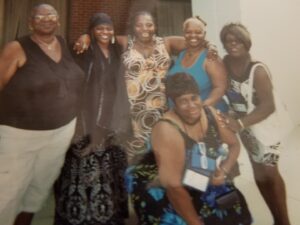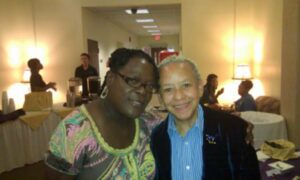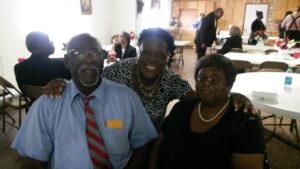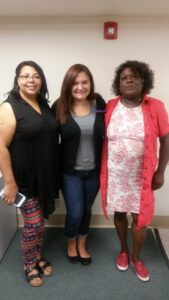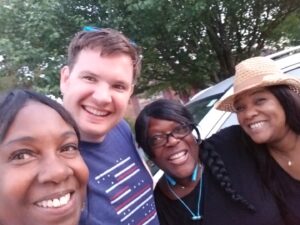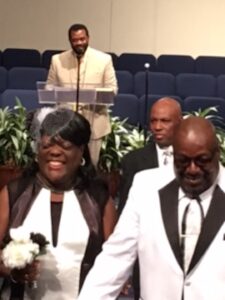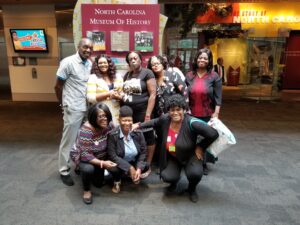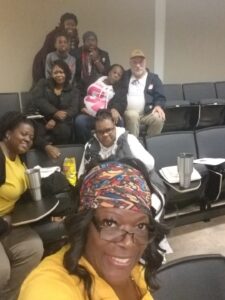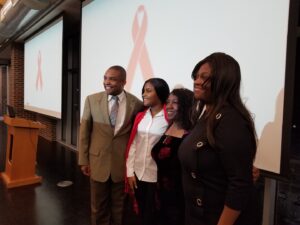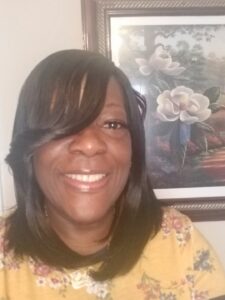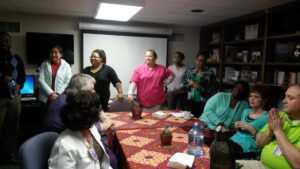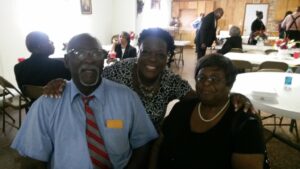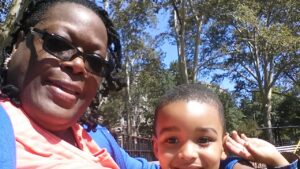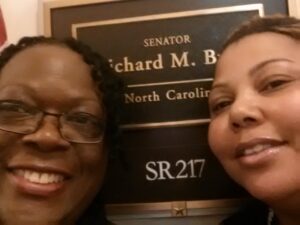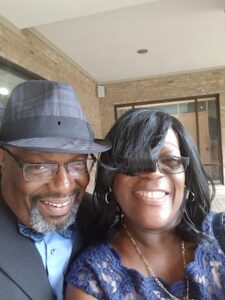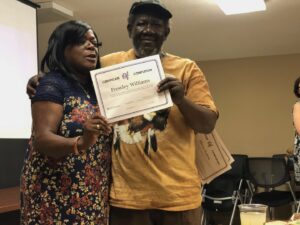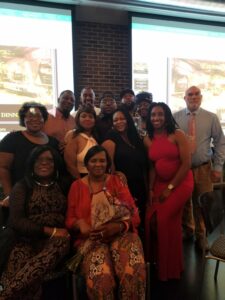Esther Ross was born on April 22nd, 1961, in Brooklyn, New York. Raised in Bucksport, South Carolina, she grew up as one of eleven siblings.
Her parents’ diverse backgrounds shaped her perspective early on. Whilst her father was Catholic, her mother had an affiliation with the African Methodist Episcopal (AME) Zion church. Her childhood was marked by her mother’s battle with alcoholism and her father’s occupation as a sea merchant. At the age of five, Esther’s parents separated and her mother moved to New York. After the separation, she divided her time between New York and Bucksport, also shouldering the responsibility of caring for her three younger siblings.
During the 1980s AIDS epidemic, Esther was working as a correction officer at the notorious Rikers Island prison. In 1993, she received a life-altering diagnosis of AIDS. Fueled by the fear she was going to die, she started to self-destruct through alcohol and drugs.
A pivotal moment arrived when a drug-induced accident left her comatose for weeks. This wake-up call led her to confront her addiction, and Esther went to a rehab center in Florida.
Though she got clean, she did not fully address her issues. After another relapse and subsequent accident, Esther was referred to a mental health facility. Here, she finally mustered the courage to face her HIV diagnosis head-on. She found tools for transformation through therapy, medication, and participation in Narcotics Anonymous’ 12-step program.
In time, Esther confronted the reality of her diagnosis. She addressed her mental health and began to educate herself on HIV, which led her to a role as a peer educator at an HIV treatment group. Here she conducted counselling to guide others through their diagnoses.
Esther then enrolled in The African American HIV University (AAHU), a training and leadership program run by the Black AIDS Institute.
In 2002, she moved to North Carolina and threw herself back into activism. She collaborated with NCAAN’s Women Empowerment (WE) Teams, advocating for women living with and affected by HIV, and fighting for equity and representation in healthcare. In their work here, Esther and her colleagues have been praised in their efforts to defend Medicaid funding, preserve the Affordable Care Act, and register women to vote.
Esther joined Equality North Carolina to ensure justice for the LGBTQ+ community as an ally. She also acquired a role as the Vulnerable Populations Coordinator at the North Carolina Department of Health and Human Services.
She spends her spare time volunteering at the nonprofit Circle of Friends organization, extending a helping hand to those in need, and offering support in various forms. Through their LAMPS (Leaders Advocating, Mentoring, Personal Growth and Support) initiative, she wants to have mentors available to every person living with HIV or any other medical condition.
Esther’s journey is one of resilience, advocacy, and compassion. Her efforts have worked to shatter stigmas surrounding HIV, especially in the LGBTQ+ community. As a beacon of hope and change, Esther Ross continues to inspire lives from her home in Greenville, North Carolina.

